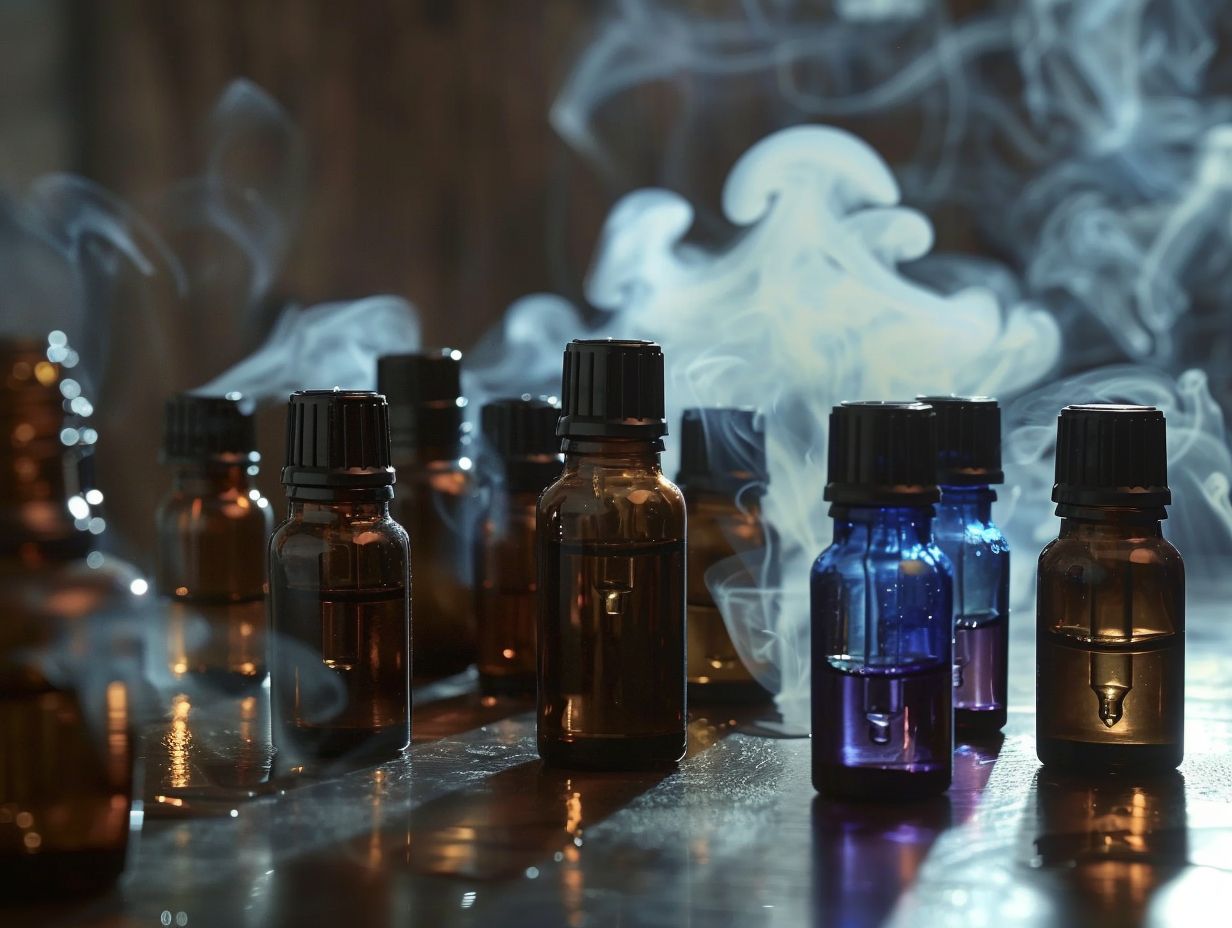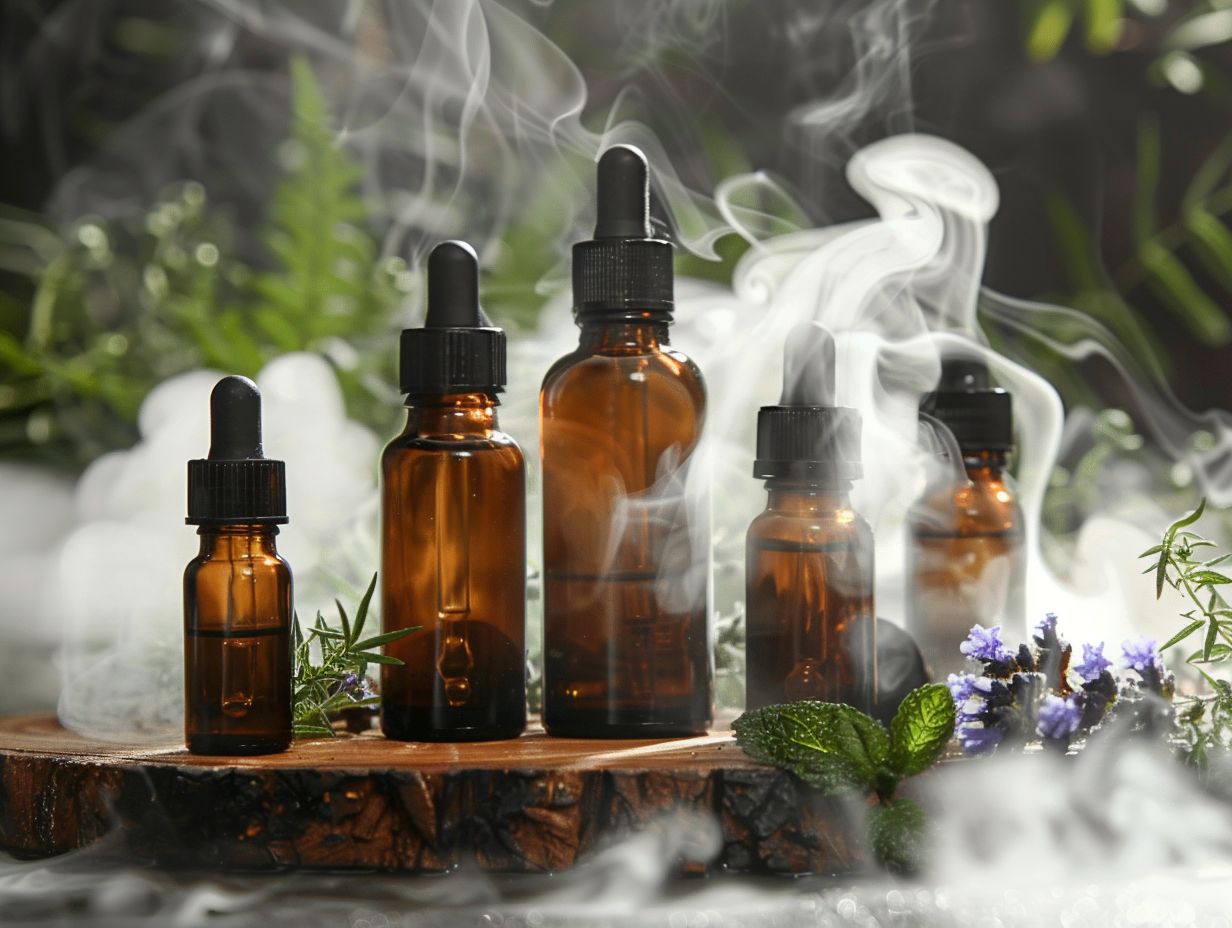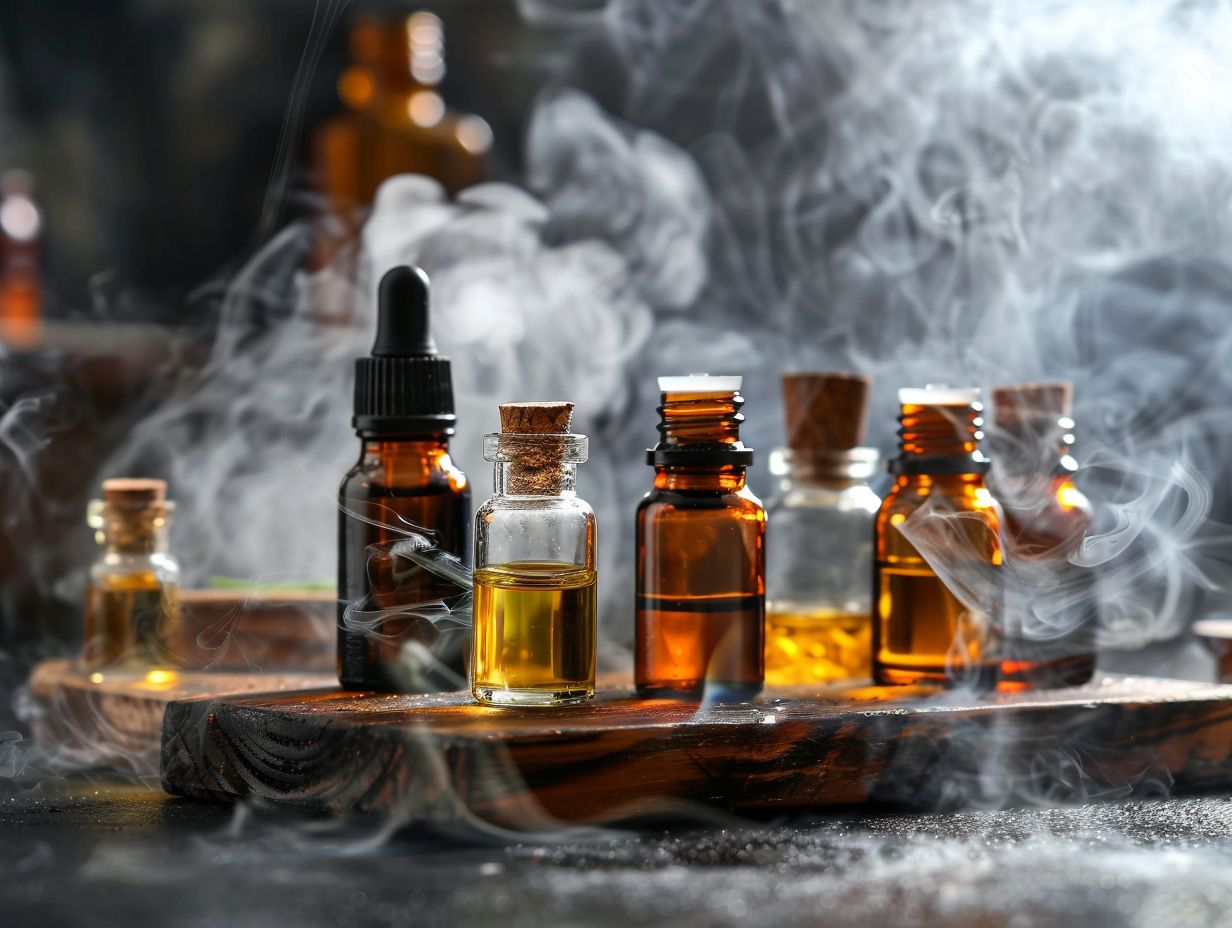Can Essential Oils Get Rid of Smoke Smell
Essential oils have become increasingly popular for their natural healing properties, but did you know they can also help eliminate stubborn smoke odors?
We will explore what essential oils are, how they work, and the different ways they can be used to combat smoke smell.
Discover the various types of smoke odor, the best essential oils for removing it, and whether or not essential oils are a safe and effective option.
We will also look into other methods for getting rid of smoke smell, such as cleaning products, air purifiers, and professional cleaning services.
If you’re looking for a natural and effective solution to eliminate smoke odors, keep reading to learn more.
Key Takeaways:
What are Essential Oils?
Essential oils are natural aromatic compounds extracted from plants, known for their various therapeutic and aromatic properties. These oils are highly concentrated plant extracts that retain the natural smell and flavor of their source. They are commonly used in aromatherapy, skincare, and home cleaning products due to their potent and diverse benefits.
Essential oils have been used for centuries in traditional medicine practices across different cultures. The extraction process varies depending on the plant type; some oils are steam distilled, while others are cold-pressed or solvent-extracted.
Lavender oil, for example, is known for its calming effects and is often used in relaxation blends and skincare products. On the other hand, Tea Tree oil is valued for its antiseptic properties and is commonly found in acne treatments and natural disinfectants.
How Do Essential Oils Work?
Essential oils work through their aromatic compounds that interact with receptors in the nose, skin, and body when inhaled or applied topically. These compounds can trigger various physiological responses in the body, influencing mood, emotions, and overall well-being.
One key aspect of essential oils is their ability to target specific areas of the brain that regulate emotions and stress levels. For example, the scent of lavender oil has been found to activate neurotransmitters that promote relaxation and reduce anxiety.
Essential oils can also have direct effects on the body’s physiological processes. For instance, peppermint oil contains menthol, which has a cooling sensation that can help soothe headaches and muscle tension when applied topically.
What Are the Different Ways to Use Essential Oils?
There are several methods to use essential oils, including diffusion in a nebulizing diffuser to purify the air and create a pleasant atmosphere in your home. Essential oils can also be applied topically when diluted with a carrier oil for skincare or massage purposes.
Another common method of using essential oils is through topical application, which involves mixing a few drops of the chosen oil with a carrier oil such as coconut, jojoba, or almond oil before applying it to the skin. This method allows the oils to be absorbed through the skin and enter the bloodstream, providing various benefits depending on the oil used.
It is important to note that essential oils are highly concentrated and can cause irritation or adverse reactions if not properly diluted. To ensure safety, always dilute essential oils according to recommended ratios before applying them to the skin.
What Is Smoke Smell?
Smoke smell refers to the lingering odor left behind by smoke particles from sources like cigarettes, fire, or cooking. It often permeates surfaces, fabrics, and air, creating an unpleasant and pervasive scent that can be challenging to eliminate.
Smoke smell is well-known for its tenacious nature, seeping into every nook and cranny of a room. The acrid tang of cigarette smoke, the charred aftermath of a house fire, or the pungent remnants of cooking mishaps all contribute to this distinct olfactory experience. This persistent odor not only lingers in the air but also clings to upholstery, curtains, walls, and even personal belongings. The longer smoke smell remains untreated, the harder it becomes to eradicate, necessitating thorough cleaning and deodorizing measures.
What Causes Smoke Smell?

Once these smoke particles come into contact with surfaces, they seep into the porous materials, creating a challenge in removing the smell. Carbon monoxide, tar, and other volatile compounds found in smoke get trapped within the fibers of furniture, clothing, and walls, leading to the stubborn essence of smoke odor. Over time, the absorption and retention of these harmful substances can intensify the smell, making it challenging to eliminate completely.
What Are the Different Types of Smoke Smell?
There are various types of smoke smells, including those resulting from fire damage, cigarette smoke, or cooking fumes. Each type of smoke smell carries distinct characteristics and challenges when it comes to removal and deodorization.
Fire damage smoke smells are typically the most pungent and pervasive, with a strong, acrid odor that can permeate walls and fabrics. Removing fire smoke odors often requires specialized cleaning agents and equipment due to the complex chemical composition of the residues.
Cigarette smoke, on the other hand, is characterized by a stale, lingering smell that tends to cling to surfaces and fabrics. The nicotine and tar present in cigarette smoke can create stubborn residues that may require extensive cleaning and deodorization processes.
Cooking fumes can also leave behind unpleasant odors, especially when certain foods are burned or heavily spiced. These smells can be more fleeting but may require thorough ventilation and cleaning to fully eliminate.
How Can Essential Oils Get Rid of Smoke Smell?
Essential oils are effective in combating smoke smell due to their natural deodorizing and purifying properties.
When diffused or applied correctly, these aromatic oils interact with smoke particles in the air, breaking down the compounds that cause the unpleasant odor. For example, lavender oil not only masks the smoke smell but also promotes relaxation, creating a calming atmosphere. Similarly, lemon oil is known for its antimicrobial properties, which help cleanse the air and eliminate any lingering smoke residue. By incorporating these essential oils into your cleaning routine or diffusing them in the air, you can effectively freshen your living space and enjoy a smoke-free environment.
What Are the Best Essential Oils for Getting Rid of Smoke Smell?
The best essential oils for eliminating smoke smell include lemon, tea tree, lavender, and eucalyptus. These oils possess strong deodorizing properties and refreshing scents that can help neutralize and mask smoke odors effectively.
Each of these essential oils carries unique properties that make them effective in combatting smoke odors. Lemon oil is known for its cleansing and purifying abilities, capable of cutting through tough smoke residues. Tea tree oil boasts antimicrobial properties that can help sanitize the air, while lavender oil not only masks odors but also promotes relaxation and calmness in the space. Lastly, eucalyptus oil provides a cooling effect and can clear the airways, creating a fresher environment.
How Do You Use Essential Oils to Get Rid of Smoke Smell?
To use essential oils for eliminating smoke smell, add a few drops of your chosen oil to a diffuser or mix them with water in a spray bottle for room deodorization. You can also apply diluted oils directly to fabrics or carpets to help neutralize smoke odors.
When selecting essential oils for combating smoke smell, consider using purifying options such as skunk smell, eucalyptus, or lavender. These oils possess natural deodorizing properties that can effectively mask and eliminate the scent of smoke.
To create a DIY spray, mix about 10-15 drops of your chosen oil with water in a spray bottle, and mist it around the room or onto fabric surfaces. Ensure to shake the bottle well before each use to disperse the oils evenly in the water.
Are Essential Oils Safe for Removing Smoke Smell?

Essential oils are generally safe for removing smoke smell when used as directed and properly diluted. Individuals with sensitivities or allergies to specific oils should exercise caution and perform a patch test before widespread use to prevent adverse reactions.
Proper dilution is essential to avoid skin irritation or other adverse effects. A recommended dilution ratio is 2-3 drops of essential oil per ounce of carrier oil, such as coconut or almond oil.
Adequate ventilation is crucial when diffusing oils, especially in small or poorly ventilated spaces. Opening windows and ensuring proper airflow can help disperse the scent without overwhelming the senses.
It’s also important to store essential oils safely out of reach of children and pets to prevent accidental ingestion.
What Are the Possible Side Effects of Using Essential Oils for Smoke Smell?
Possible side effects of using essential oils for smoke smell removal may include skin irritation, respiratory sensitivity, or allergic reactions in some individuals. It is essential to perform a patch test and follow dilution guidelines to minimize the risk of adverse effects.
When using essential oils to combat smoke smell, it’s crucial to be aware of potential sensitivities that may arise. Skin irritation can occur, especially for those with sensitive skin or allergies. Inhalation of concentrated oils can trigger respiratory issues in some people. To prevent such reactions, always dilute the oils appropriately before use.
Individuals prone to allergic reactions should exercise caution when dealing with essential oils. Conducting a patch test on a small area of skin prior to widespread application can help identify any adverse effects early on. Adhering to recommended dilution ratios and ventilation practices is key in minimizing the risk of unpleasant side effects.
What Are Other Methods for Removing Smoke Smell?
Along with essential oils, other effective methods for removing smoke smell include using cleaning products designed for odor elimination, deploying air purifiers with HEPA filters, and in some cases, seeking professional cleaning services for deep deodorization.
In terms of choosing the right cleaning products, look for those specifically formulated to combat smoke residue. Ingredients like baking soda, white vinegar, or hydrogen peroxide can work wonders in neutralizing odors. These products not only mask the smell but actively break down the molecules causing the unwanted stench. Proper ventilation and regular cleaning of carpets, upholstery, and curtains can also play a significant role in smoke odor removal.
Investing in an air purifier featuring a HEPA filter is an excellent step towards fresher indoor air. HEPA filters are designed to capture tiny particles, including smoke particles and other pollutants, ensuring cleaner and odor-free air circulation. Placing multiple purifiers strategically throughout your home can enhance the efficiency of smoke odor removal.
For persistent smoke smells deeply embedded in furniture, walls, or carpets, professional cleaning services offer specialized techniques and equipment for thorough deodorization. These experts utilize industrial-grade cleaners, ozone generators, and deep-cleaning methods to address smoke odors at their source, providing long-lasting relief from the smell. Consulting with professionals can be particularly beneficial for homes affected by extensive smoke exposure or previous fire incidents.
Can Cleaning Products Remove Smoke Smell?
Cleaning products formulated for smoke odor removal can effectively eliminate lingering smells by breaking down odor-causing compounds and neutralizing them. These products may come in the form of sprays, detergents, or specialized cleaners tailored for smoke remediation.
In terms of combating smoke odors, it is crucial to understand how these cleaning products work. The key mechanism involves encapsulating the smoky molecules, thus preventing them from releasing their foul smell. By using special enzymes or chemicals, these cleaners target the volatile compounds that are responsible for the odor, effectively neutralizing them. Some products also utilize activated charcoal to absorb odors, leaving the environment fresh and odor-free.
Application methods vary depending on the product. For sprays, simply mist the affected area and allow it to dry. Detergents and cleaners may require scrubbing or soaking to ensure thorough removal of the smoke residue. Some cleaning products offer long-lasting protection by creating a barrier that prevents odors from returning.
Can Air Purifiers Get Rid of Smoke Smell?
Air purifiers equipped with HEPA filters are effective in removing smoke particles and odors from indoor environments by capturing and trapping tiny particulates that contribute to the lingering smell. HEPA filtration can significantly improve air quality and reduce smoke-related odors.
When considering an air purifier for smoke remediation, it is essential to look for models specifically designed to tackle smoke particles. The efficiency of an air purifier in combating smoke odors depends on its CADR rating, which indicates the amount of clean air delivered per minute. HEPA filters are crucial for capturing even the smallest particulates present in smoke, such as soot and ash, ensuring that the air you breathe is clean and fresh. Opt for an air purifier with activated carbon filters, which excel in neutralizing odors caused by smoke.
Is Professional Cleaning Necessary to Remove Smoke Smell?

These professionals have the expertise to assess the extent of the smoke damage and determine the most effective course of action tailored to the specific situation. By enlisting professional services, individuals can benefit from the use of advanced technologies such as ozone treatments, thermal fogging, and hydroxyl generators, which are designed to neutralize odors at the molecular level. Professional deodorization services not only eliminate the unpleasant smell but also address any health risks associated with lingering smoke residues, ensuring a safe and clean environment for occupants.
Frequently Asked Questions
Can Essential Oils Get Rid of Smoke Smell?
Yes, essential oils have been proven to effectively eliminate smoke smell from the air and surfaces.
How do essential oils help to get rid of smoke smell?
Essential oils contain powerful properties that can neutralize and absorb smoke particles, leaving behind a fresh and pleasant scent.
Which essential oils are best for eliminating smoke smell?
Lavender, lemon, eucalyptus, peppermint, and tea tree essential oils are known for their ability to combat smoke odor.
How do I use essential oils to get rid of smoke smell?
You can diffuse the oils in a diffuser, make a room spray, or mix them with water and vinegar to create a cleaning solution. You can also add a few drops to your laundry to remove smoke odor from clothes.
Are essential oils safe to use for getting rid of smoke smell?
Yes, essential oils are natural and non-toxic, making them a safe alternative to chemical-based air fresheners and odor eliminators.
Can essential oils permanently get rid of smoke smell?
While essential oils can effectively eliminate smoke smell, it is important to also address the source of the smoke odor to prevent it from returning. Regular use of essential oils can help keep the air smelling fresh and free of smoke smell.








3 Comments